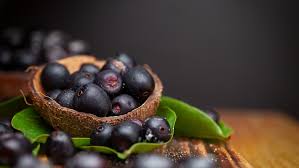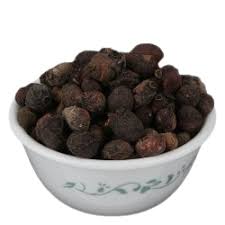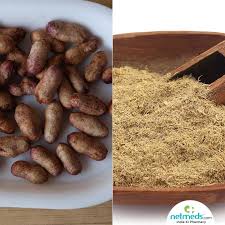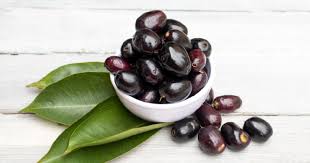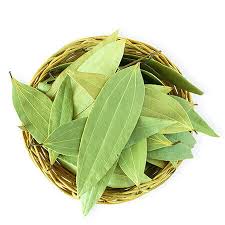
Babchi Seed vs. Modern Chemical-Based Skin Treatments
In the world of skincare, there has always been a significant divide between natural remedies and chemical-based treatments. While modern skincare innovations have provided quick and effective solutions for various skin issues, traditional remedies like Babchi Seed have stood the test of time for their holistic and natural healing properties.
At Dirghaanshi, we believe in exploring the best of both worlds—combining ancient Ayurvedic wisdom with modern scientific advancements. In this article, we’ll explore how Babchi Seed, a key herb in Ayurvedic skincare, compares to chemical-based skin treatments, highlighting their respective benefits and potential drawbacks. By understanding these differences, you can make an informed decision about which approach is best for your skin.
🌸 Long Description
🔍 What is Babchi Seed?
Babchi Seed, scientifically known as Psoralea corylifolia, is an ancient herb that has been used in Ayurvedic practices for centuries. Its seeds contain potent compounds such as bakuchiol, psoralen, and flavonoids, which are known for their anti-aging, anti-inflammatory, and skin-rejuvenating properties. Traditionally, Babchi Seed has been used to address a range of skin issues, including hyperpigmentation, acne, wrinkles, and skin dryness. It’s also celebrated for its ability to balance the skin’s Vata, Pitta, and Kapha doshas, which are essential for maintaining healthy skin.
In recent years, Babchi Seed has gained attention for being a natural alternative to synthetic skincare ingredients such as retinoids. Thanks to its bakuchiol content, it’s being heralded as a gentler option for people with sensitive skin who may be sensitive to harsher chemicals.
💡 Modern Chemical-Based Skin Treatments
In contrast, modern chemical-based skin treatments have advanced with technology, offering more immediate and highly effective results for skin concerns. These treatments often rely on synthetic compounds to address a range of skin issues, from acne to hyperpigmentation. Some of the most common chemical ingredients used in contemporary skincare include:
Retinoids (Retinol): Popular for its ability to fight wrinkles and fine lines by stimulating collagen production.
Alpha Hydroxy Acids (AHAs): Used for exfoliation and addressing uneven skin tone.
Benzoyl Peroxide: Commonly used for treating acne.
Hydroquinone: A chemical often used for lightening dark spots and hyperpigmentation.
These ingredients are highly effective and deliver quick results. However, they can sometimes come with side effects, such as skin irritation, redness, and dryness, particularly for individuals with sensitive skin.
🌿 Babchi Seed vs. Chemical-Based Treatments: A Comparative Analysis
Let’s dive into the key differences between Babchi Seed and modern chemical-based treatments across various skincare concerns.
✅ 1. Natural vs. Synthetic: A Holistic Approach
Babchi Seed is an all-natural, plant-based ingredient. As a part of Ayurvedic practices, it works in harmony with the body’s natural healing processes, making it gentle on the skin. Bakuchiol, the active compound in Babchi Seed, is a natural alternative to retinol, providing similar benefits such as promoting cell turnover and reducing fine lines without the harsh effects that some people experience with synthetic retinol.
On the other hand, modern chemical-based treatments are formulated with synthetic compounds, which are often designed to provide rapid results. While these treatments can be effective, they may also pose a higher risk of skin irritation, especially for those with sensitive skin. For example, retinol can cause dryness, peeling, and sensitivity to the sun, which may not be suitable for all skin types.
✅ 2. Treatment for Hyperpigmentation
Babchi Seed is highly regarded in Ayurveda for its ability to treat hyperpigmentation and dark spots. The psoralen content in Babchi Seed inhibits melanin production, leading to a brighter and more even skin tone. Regular use of Babchi-infused products has been shown to reduce dark spots and improve overall skin clarity without the need for strong chemicals.
Modern chemical-based treatments like hydroquinone and vitamin C serums are also effective in reducing dark spots and uneven pigmentation. However, these treatments can cause irritation or make the skin more sensitive, particularly in the sun. Hydroquinone, while effective, has been associated with potential side effects such as skin thinning and uneven pigmentation when used for prolonged periods.
✅ 3. Acne and Blemishes
Both Babchi Seed and chemical-based treatments offer solutions for acne. Babchi Seed has natural antibacterial and anti-inflammatory properties, which help soothe and prevent breakouts. The bakuchiol in Babchi Seed also works to reduce sebum production while healing acne scars and preventing new breakouts. Ayurvedic skincare rituals that incorporate Babchi Seed tend to provide long-term relief from acne while balancing the skin’s overall health.
Chemical treatments like benzoyl peroxide and salicylic acid are popular choices for pimple and acne treatment due to their immediate effects. However, these treatments can sometimes over-dry the skin, leaving it irritated or flaky. Overuse of chemical treatments can lead to an imbalance in the skin’s natural oils, causing more breakouts in the long run.
✅ 4. Anti-Aging: Reducing Fine Lines and Wrinkles
Babchi Seed is known for its anti-aging properties due to bakuchiol, which has been shown to stimulate collagen production and promote cell turnover. Unlike retinoids, Babchi Seed works gently on the skin, providing anti-aging benefits without causing the irritation that some users experience with synthetic retinol.
While chemical-based treatments like retinol and AHAs are known for their effectiveness in reducing fine lines and wrinkles, they can also cause peeling, redness, and skin sensitivity, especially when first introduced to the skincare routine.
✅ 5. Skin Sensitivity and Side Effects
Babchi Seed is a natural remedy and is typically less likely to cause skin irritation or sensitivity compared to chemical treatments. However, it’s still important to patch-test Babchi Seed products, as everyone’s skin is different. Its cooling properties make it suitable for all skin types, including sensitive skin, and it is widely used in Ayurvedic skin healing rituals.
Chemical-based treatments, while highly effective, often come with a risk of side effects such as dryness, redness, irritation, and sun sensitivity. Synthetic compounds like retinoids and hydroquinone may cause adverse reactions when overused or not used correctly.
🌿 Which Option is Best for You?
Both Babchi Seed and modern chemical-based treatments have their advantages. If you prefer a gentle, natural approach with long-term benefits, Babchi Seed is an excellent choice. It’s ideal for those who want to avoid harsh chemicals and prefer to incorporate holistic healing into their skincare routine.
However, if you’re looking for rapid results and are willing to deal with potential side effects or irritation, modern chemical-based treatments may provide quicker fixes for specific concerns like acne or deep wrinkles. Always consult a dermatologist before introducing new treatments into your routine.


